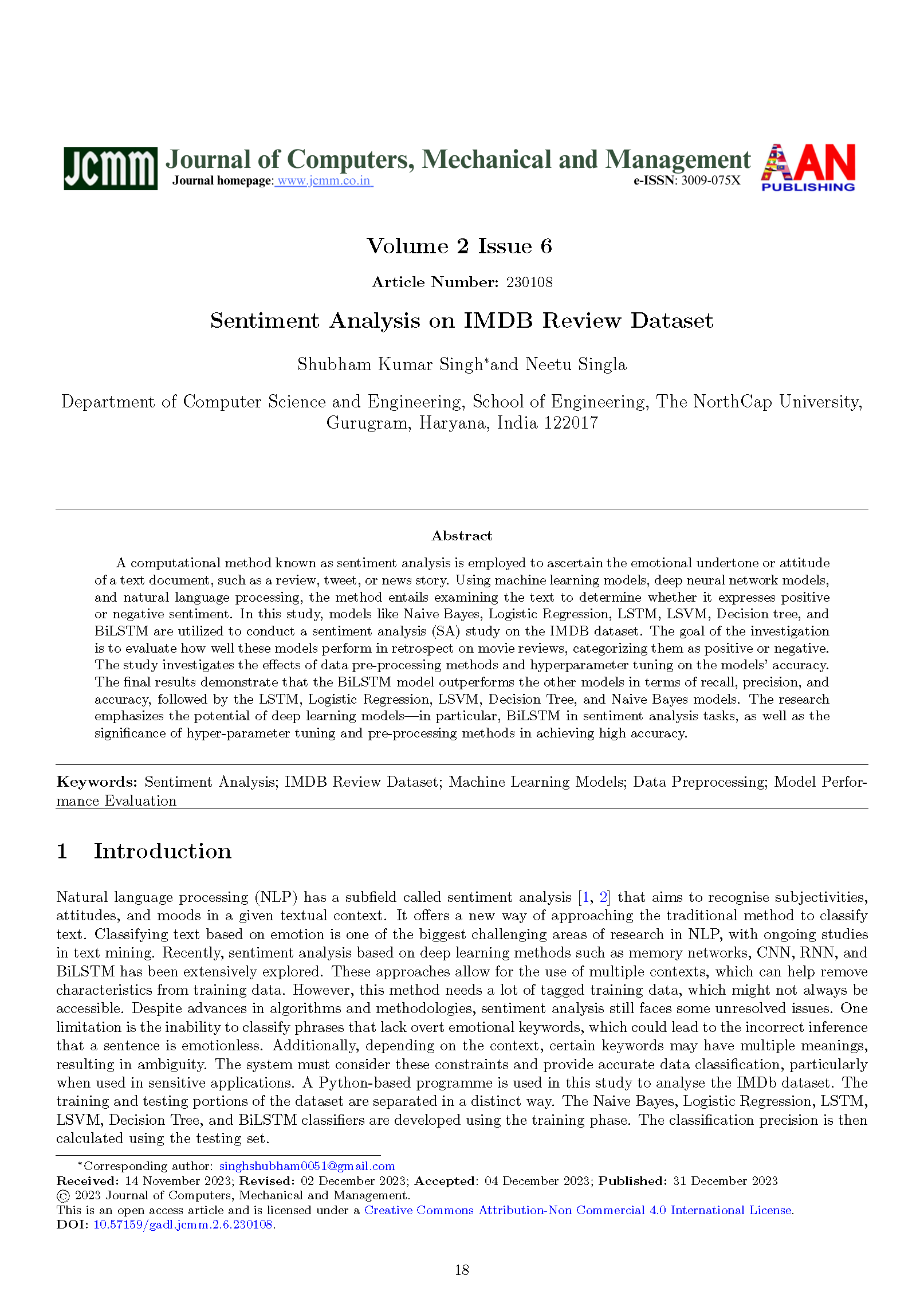Sentiment Analysis on IMDB Review Dataset
DOI:
https://doi.org/10.57159/gadl.jcmm.2.6.230108Keywords:
Sentiment Analysis, IMDB Review Dataset, Machine Learning Models, Data Preprocessing, Model Performance EvaluationAbstract
A computational method known as sentiment analysis is employed to ascertain the emotional undertone or attitude of a text document, such as a review, tweet, or news story. Using machine learning models, deep neural network models, and natural language processing, the method entails examining the text to determine whether it expresses positive or negative sentiment. In this study, models like Naive Bayes, Logistic Regression, LSTM, LSVM, Decision tree, and BiLSTM are utilized to conduct a sentiment analysis (SA) study on the IMDB dataset. The goal of the investigation is to evaluate how well these models perform in retrospect on movie reviews, categorizing them as positive or negative. The study investigates the effects of data pre-processing methods and hyperparameter tuning on the models’ accuracy. The final results demonstrate that the BiLSTM model outperforms the other models in terms of recall, precision, and accuracy, followed by the LSTM, Logistic Regression, LSVM, Decision Tree, and Naive Bayes models. The research emphasizes the potential of deep learning models—in particular, BiLSTM in sentiment analysis tasks, as well as the significance of hyper-parameter tuning and pre-processing methods in achieving high accuracy.

Downloads
Published
How to Cite
Issue
Section
License
Copyright (c) 2023 Journal of Computers, Mechanical and Management

This work is licensed under a Creative Commons Attribution-NonCommercial 4.0 International License.
The Journal of Computers, Mechanical and Management applies the CC Attribution- Non-Commercial 4.0 International License to its published articles. While retaining copyright ownership of the content, the journal permits activities such as downloading, reusing, reprinting, modifying, distributing, and copying of the articles, as long as the original authors and source are appropriately cited. Proper attribution is ensured by citing the original publication.





